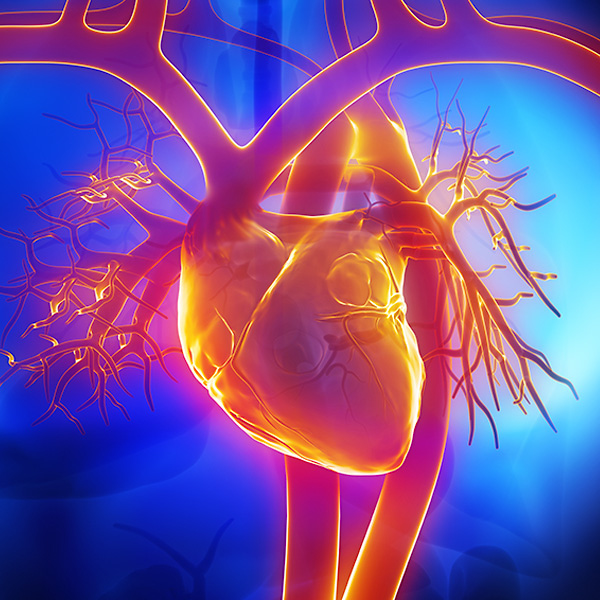Restrictive Cardiomyopathy (RCM)
Overview and Facts about Restrictive Cardiomyopathy (RCM)
Restrictive cardiomyopathy, or RCM, is a heart condition characterized by impaired heart muscle function that causes the heart to function in an uncoordinated fashion.
Specifically, the heart ventricle muscles fail to contract properly (diastolic dysfunction), meaning that the heart fails to either fill with the blood it receives or contract to release the blood it received. This physical impairment results in less oxygen and nutrient flow to other parts of the body and heart swelling.
Signs and Symptoms of Restrictive Cardiomyopathy (RCM)
Individuals with RCM often have normal heart function most of the time. However, symptoms may worsen or become more noticeable during exercise or physical activity. Symptoms can appear anytime between childhood and adulthood.
The most common sign or symptom of RCM is heart failure. Individuals with RCM may have a normal sized heart or a slightly enlarged heart due to poor blood flow through the heart. After each muscle contraction, the heart muscle becomes stiff and does not fully relax after a muscle contraction.
Other signs and symptoms include:
- Loss of appetite
- Abdominal swelling
- Feet and ankle swelling
- Coughing
- Fatigue
- Rapid or uneven pulse
- Chest pain
- Inability to concentrate or dizziness
- Reduced ability to exercise
- Enlarged liver
Causes and Risk Factors of Restrictive Cardiomyopathy (RCM)
Several medical conditions can cause or increase the risk of RCM. They include but are not limited to heart tumors, heart tissue scarring after radiation or chemotherapy, and iron overload (hemochromatosis). Individuals may also inherit RCM (familial RCM) if it runs in their families.
Other causes and risk factors include:
- Amyloidosis
- Fabry disease
- Sarcoidosis
- Gaucher disease
- Hurler disease
- Anthracycline (chemotherapy) treatment
Tests and Diagnosis of Restrictive Cardiomyopathy (RCM)
Several procedures are used to test for and diagnose RCM. These include but are not limited to chest X-ray, computerized tomography imaging, electrocardiogram, nuclear heart scans, and magnetic resonance imaging of the heart.
Serum or urine protein tests are also used to look for chemical signs of RCM. In rare cases, a tissue sample from the heart is removed for laboratory testing. Serum iron studies are also used to determine how much iron is in the blood.
Treatment and Care for Restrictive Cardiomyopathy (RCM)
Depending on the causes, RCM can be treated in many ways, including:
- Steroid medication to reduce inflammation
- Blood-thinning medication to dissolve or prevent blood clots
- Diuretics to reduce fluid buildup in the lungs and improve breathing
- Chemotherapy to treat cancerous tissue in the heart
- Heart transplant surgery in severe or life-threatening cases

Request an Appointment
Loyola Medicine heart and vascular specialists have the experience and technology to treat the most difficult cardiac and vascular conditions. Schedule an appointment today.
Schedule a Telehealth Appointment
